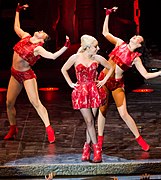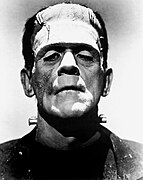Emelia Quinn
| |||||||
Read other articles:
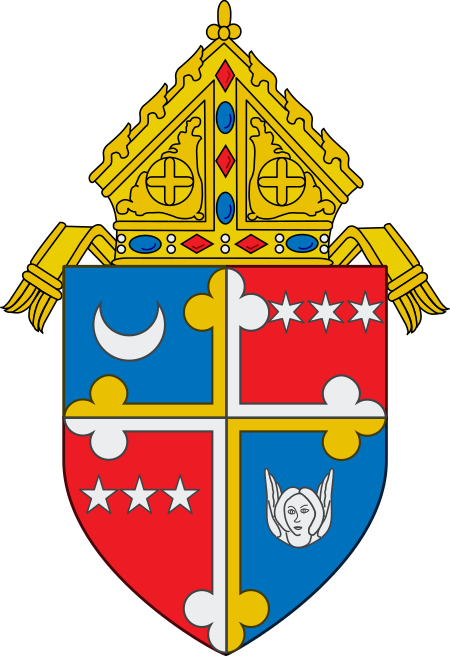
American clergyman This article needs additional citations for verification. Please help improve this article by adding citations to reliable sources. Unsourced material may be challenged and removed.Find sources: John Michael McNamara ŌĆō news ┬Ę newspapers ┬Ę books ┬Ę scholar ┬Ę JSTOR (August 2015) (Learn how and when to remove this message) John Michael McNamaraAuxiliary Bishop of WashingtonBishop McNamara High SchoolIn office1947-1960Other post(s)Titular Bi…

Elections to the Baseball Hall of Fame This article needs additional citations for verification. Please help improve this article by adding citations to reliable sources. Unsourced material may be challenged and removed.Find sources: 1993 Baseball Hall of Fame balloting ŌĆō news ┬Ę newspapers ┬Ę books ┬Ę scholar ┬Ę JSTOR (October 2019) (Learn how and when to remove this message) 1993 Baseball Hall of Fame ballotingNew inductees1via BBWAA1Total inductees216Induc…

Place in Gaza, Mandatory Palestineal-Batani al-Sharqi ž¦┘äž©žĘž¦┘å┘Ŗ ž¦┘äž┤ž▒┘é┘ŖEtymology: The eastern Butani[1] 1870s map 1940s map modern map 1940s with modern overlay map A series of historical maps of the area around Al-Batani al-Sharqi (click the buttons)al-Batani al-SharqiLocation within Mandatory PalestineCoordinates: 31┬░45ŌĆ▓07ŌĆ│N 34┬░43ŌĆ▓24ŌĆ│E / 31.75194┬░N 34.72333┬░E / 31.75194; 34.72333Palestine grid123/128Geopolitical entityMandatory Palesti…

Keluarga AK-100 meliputi serangkaian senapan Kalashnikov yang berdasar pada AK-74M dan ditujukan yntuk penjualan ekspor.[1] Keluarga senapan ini menawarkan sistem AK-74M dalam berbagai selongsong peluru dan panjang.[2] Seri AK-100M/200 Keluarga senapan AK-100M/AK-200 awalnya dirancang sekitar tahun 2009 sebagai varian perbaikan dari seri dasar AK-100. Sebagian besar perbaikan berpusat pada peningkatan ergonomis dan sistem pemasangan aksesori. Pengembangan keluarga AK-100M/AK-200 …

ž¼ž¦ž▓┘ģž╣┘ä┘ł┘ģž¦ž¬ ž╣ž¦┘ģž®žŻžĄ┘ä ž¦┘䞬ž│┘ģ┘Ŗž® ž¦┘äž│ž╣ž¦ž»ž® ž¦┘äž║ž¦┘ģž▒ž®ž¦┘äž©┘äž» ž¦┘ä┘ł┘䞦┘Ŗž¦ž¬ ž¦┘ä┘ģž¬žŁž»ž® ž¦┘ä┘åž┤žŻž® ┘łž¦┘äžĖ┘ć┘łž▒ 1917 žŻžĄ┘ł┘ä ž¦┘䞯ž│┘ä┘łž© ┘ģ┘łž│┘Ŗ┘é┘ē ž┤ž¦ž”ž╣ž® ž¦┘䞯žĄ┘ł┘ä ž¦┘äž½┘鞦┘ü┘Ŗž® ž¦┘ä┘ł┘䞦┘Ŗž¦ž¬ ž¦┘ä┘ģž¬žŁž»ž® ž¦┘䞯┘ģž▒┘Ŗ┘ā┘Ŗž®ž¦┘äžó┘䞦ž¬ ž¦┘ä┘ģ┘łž│┘Ŗ┘é┘Ŗž® ž¦┘ä┘å┘ģ┘łž░ž¼┘Ŗž® ž│ž¦┘āž│┘ł┘ü┘ł┘å - ┘é┘Ŗž½ž¦ž▒ - ┘ā┘ģž¦┘å -ž©┘Ŗž¦┘å┘ł - ž¦┘䞬ž▒┘ł┘ģž©┘ł┘å - ž©┘ł┘é ž║ž▒ž©┘Ŗž¬ž╣ž»┘Ŗ┘ä - ž¬ž╣ž»┘Ŗ┘ä ┘ģžĄž»ž▒┘Ŗ - ž¬ž╣ž»┘Ŗ┘ä ┘ł┘Ŗ┘ā┘Ŗ ž©┘Ŗž¦┘垦ž…

┘āž¦ž¬ž© žŻž│ž¦žĘ┘Ŗž▒ž¦┘䞬ž│┘ģ┘Ŗž® ┘ä┘䞯┘åž½┘ē ┘āž¦ž¬ž©ž® žŻž│ž¦žĘ┘Ŗž▒ ┘üž▒ž╣ ┘ģ┘å ┘āž¦ž¬ž© ž¦┘ä┘ģž¼ž¦┘ä mythography (en) ž¬ž╣ž»┘Ŗ┘ä - ž¬ž╣ž»┘Ŗ┘ä ┘ģžĄž»ž▒┘Ŗ - ž¬ž╣ž»┘Ŗ┘ä ┘ł┘Ŗ┘ā┘Ŗ ž©┘Ŗž¦┘垦ž¬ ┘ćž░┘ć ┘łž¦žŁž»ž® ┘ģ┘å ž│┘äž│┘äž® ┘ģ┘鞦┘䞦ž¬ žŁ┘ł┘䞦┘䞯ž│ž¦žĘ┘Ŗž▒ žŁž│ž© ž¦┘䞣žČž¦ž▒ž® ž╣ž▒ž©┘Ŗž® žŻž▒┘ģ┘å┘Ŗž® ž¦┘äžóž▓ž¬┘Ŗ┘ā ┘é┘äžĘ┘Ŗž® ┘ł┘Ŗ┘äž▓┘Ŗž® ┘ćž©ž▒ž»┘Ŗž│┘Ŗž® ┘ģž│┘ŖžŁ┘Ŗž® žĄ┘Ŗ┘å┘Ŗž® ┘ģžĄž▒┘Ŗž® žźž║ž▒┘Ŗ┘é┘Ŗž® ž║┘łž¦ž▒ž¦┘å┘Ŗž® ┘ć┘åž»┘łž│┘Ŗž® žźž│┘䞦┘ģ┘Ŗž® ┘Ŗž¦ž©ž¦┘å┘Ŗž® ┘Ŗ┘ć┘łž»┘Ŗž® ┘ā┘łž▒┘Ŗž…

Ķ▒¬µĀäķüō Ķ▒¬Õż¬ķāÄ ÕĀ┤µēĆÕģźŃéŖŃüÖŃéŗĶ▒¬µĀäķüōÕ¤║ńżÄµāģÕĀ▒ÕøøĶéĪÕÉŹ µŠżõ║Ģ Ķ▒¬Õż¬ķāÄŌåÆĶ▒¬µĀäķüō Ķ▒¬Õż¬ķāĵ£¼ÕÉŹ µŠżõ║Ģ Ķ▒¬Õż¬ķāĵäøń¦░ Ńé┤Ńé”Ńé┐ŃāŁŃé”ŃĆüĶ▒¬ŃüĪŃéāŃéōŃĆüGAD[1][2]ńö¤Õ╣┤µ£łµŚź (1986-04-06) 1986Õ╣┤4µ£ł6µŚź’╝ł38µŁ│’╝ēÕć║Ķ║½ Õż¦ķś¬Õ║£Õ»ØÕ▒ŗÕĘØÕĖéĶ║½ķĢĘ 183cmõĮōķćŹ 160kgBMI 47.26µēĆÕ▒×ķā©Õ▒ŗ ÕóāÕĘØķā©Õ▒ŗÕŠŚµäŵŖĆ ÕÅ│ÕøøŃüżŃā╗Õć║ŃüŚµŖĢŃüÆŃā╗ÕłćŃéŖĶ┐öŃüŚŃā╗Õż¢µÄøŃüæŃā╗ķ”¢µŖĢŃüÆŃā╗ÕÅ│õĖŗµēŗµŖĢŃüƵłÉńĖŠńÅŠÕ£©Ńü«ńĢ¬õ╗ś Õ╝ĢķĆƵ£Ćķ½śõĮŹ µØ▒Õż¦ķ¢óńö¤µČ»µł”µŁ┤ 696ÕŗØ493µĢŚ66õ╝…

Protein-coding gene in humans IRAK2Available structuresPDBOrtholog search: PDBe RCSB List of PDB id codes3MOPIdentifiersAliasesIRAK2, IRAK-2, interleukin 1 receptor associated kinase 2External IDsOMIM: 603304 MGI: 2429603 HomoloGene: 1207 GeneCards: IRAK2 Gene location (Human)Chr.Chromosome 3 (human)[1]Band3p25.3Start10,164,919 bp[1]End10,243,745 bp[1]Gene location (Mouse)Chr.Chromosome 6 (mouse)[2]Band6 E3|6 52.82 cMStart113,615,428 bp[2]End113,671,9…

ž«ž©ž▓ žĘž¦ž©┘ł┘å┘ģž╣┘ä┘ł┘ģž¦ž¬ ž╣ž¦┘ģž®ž¦┘ä┘ģ┘åž┤žŻ ž¦┘䞯ž▒ž»┘åžī┘äž©┘垦┘åžīž│┘łž▒┘Ŗž¦ ž¦┘äž╣ž▒ž¦┘éžī ┘ł┘ü┘äž│žĘ┘Ŗ┘å┘ł ┘ģž╣žĖ┘ģ ž¦┘ä┘łžĘ┘å ž¦┘äž╣ž▒ž©┘Ŗž¦┘ä┘å┘łž╣ ž«ž©ž▓ ┘ģ┘üž▒┘łž»ž¬ž╣ž»┘Ŗ┘ä - ž¬ž╣ž»┘Ŗ┘ä ┘ģžĄž»ž▒┘Ŗ - ž¬ž╣ž»┘Ŗ┘ä ┘ł┘Ŗ┘ā┘Ŗ ž©┘Ŗž¦┘垦ž¬ ž«ž©ž▓ ž¦┘äžĘž¦ž©┘ł┘å žŻ┘ł ž«ž©ž▒ ž¦┘䞬┘å┘łž▒ žŻ┘ł ž¦┘äž«ž©ž▓ ž¦┘äž©┘äž»┘Ŗ žŻ┘ł ž¦┘ä┘ä┘üž®žī[1] ┘ć┘ł ž«ž©ž▓ ┘ģ┘üž▒┘łž» ┘Ŗž│ž¬ž«ž»┘ģ ┘ü┘Ŗ ž¦┘äž┤ž▒┘é ž¦┘䞯┘łž│žĘ ┘ä┘ü┘Ä┘æž® ┘ł┘Ŗž│ž¬ž«ž»┘ģ ┘ü┘Ŗ ž©ž╣žČ ž¦┘äžĘž©ž«ž¦ž¬ ž¦┘䞬ž▒ž¦ž½┘Ŗž® žŻ┘ŖžČž¦…

Carex phaeocephala Klasifikasi ilmiah Kerajaan: Plantae (tanpa takson): Tracheophyta (tanpa takson): Angiospermae (tanpa takson): Monokotil (tanpa takson): Komelinid Ordo: Poales Famili: Cyperaceae Genus: Carex Spesies: Carex phaeocephala Nama binomial Carex phaeocephalaPiper Carex phaeocephala adalah spesies tumbuhan seperti rumput yang tergolong ke dalam famili Cyperaceae. Spesies ini juga merupakan bagian dari ordo Poales. Spesies Carex phaeocephala sendiri merupakan bagian dari genus Carex.&…

ž│ž¬┘Ŗ┘ü┘å ┘ā┘Ŗž▒┘å┘Ŗ ┘ģž╣┘ä┘ł┘ģž¦ž¬ ž┤ž«žĄ┘Ŗž® ž¦┘ä┘ģ┘Ŗ┘䞦ž» 30 žŻž║ž│žĘž│ 1794(1794-08-30)┘å┘Ŗ┘łžóž▒┘āžī ┘å┘Ŗ┘łž¼┘Ŗž▒ž│┘Ŗ ž¦┘ä┘ł┘üž¦ž® 31 žŻ┘āž¬┘łž©ž▒ 1848 (54 ž│┘åž®)ž│ž¦┘垬 ┘ä┘ł┘Ŗž│žī ┘ģ┘Ŗž▓┘łž▒┘Ŗ ┘ģ┘łž¦žĘ┘åž® ž¦┘ä┘ł┘䞦┘Ŗž¦ž¬ ž¦┘ä┘ģž¬žŁž»ž® ž¦┘䞣┘Ŗž¦ž® ž¦┘äž╣┘ģ┘ä┘Ŗž® ž¦┘ä┘ģž»ž▒ž│ž® ž¦┘䞯┘ģ ž¼ž¦┘ģž╣ž® ┘ā┘ł┘ä┘ł┘ģž©┘Ŗž¦ ž¦┘ä┘ģ┘ć┘åž® ž╣ž│┘āž▒┘Ŗžī ┘łž│┘Ŗž¦ž│┘Ŗ ž¦┘äž«ž»┘ģž® ž¦┘äž╣ž│┘āž▒┘Ŗž® ž¦┘ä┘üž▒ž╣ ž¦┘ä┘é┘łž¦ž¬ ž¦┘äž©ž▒┘Ŗž® ┘ä┘ä┘ł┘䞦┘Ŗž¦ž¬ ž¦┘ä┘ģž¬žŁž»ž® ž¦┘äž▒ž¬ž©…

Peta menunjukkan lokasi Boliney. Boliney adalah munisipalitas yang terletak di provinsi Abra, Filipina. Pada tahun 2011, munisipalitas ini memiliki populasi sebesar 3.349 jiwa atau 763 rumah tangga.[1] Pembagian wilayah Boliney terbagi menjadi 8 barangay, yaitu: Barangay Penduduk (2007) Amti 328 Bao-yan 440 Danac East 459 Danac West 474 Dao-angan 328 Dumagas 308 Kilong-Olao 183 Poblacion (Boliney) 829 Referensi ^ Local Governance Performance Management System. Diarsipkan dari versi asli …

County in Virginia, United States County in VirginiaSpotsylvania CountyCountyHistoric home listed on the National Register of Historic Places in Spotsylvania County FlagSealLogoMotto(s): Patior Ut Potiar(Latin for 'I suffer to obtain')[1][2][3][4]Location within the U.S. state of VirginiaVirginia's location within the U.S.Coordinates: 38┬░11ŌĆ▓N 77┬░39ŌĆ▓W / 38.18┬░N 77.65┬░W / 38.18; -77.65Country United StatesState …

Russian politician In this name that follows Eastern Slavic naming customs, the patronymic is Valerianovich and the family name is Kanayev. You can help expand this article with text translated from the corresponding article in Russian. (February 2024) Click [show] for important translation instructions. Machine translation, like DeepL or Google Translate, is a useful starting point for translations, but translators must revise errors as necessary and confirm that the translation is acc…
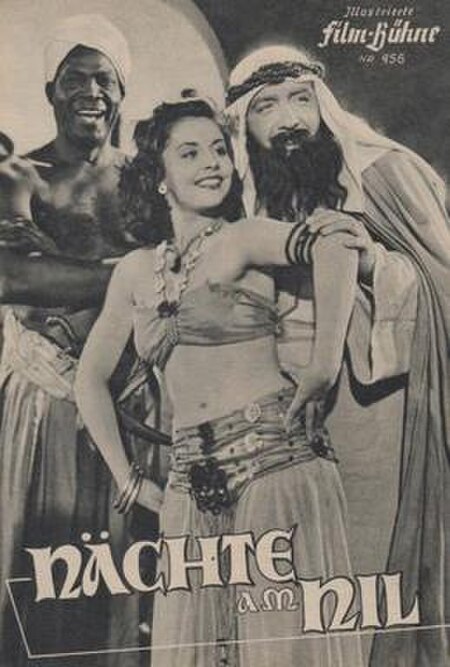
1949 film Nights on the NileDirected byArthur Maria RabenaltWritten byBobby E. L├╝thge (musical)Ernst HasselbachProduced byFrank CliffordStarringSonja ZiemannWolfgang LukschyKurt SeifertCinematographyFriedl Behn-GrundEdited byWalter WischniewskyMusic byFriedrich Schr├ČderProductioncompanyCordial-FilmDistributed byHerzog-FilmverleihRelease date 21 October 1949 (1949-10-21) Running time102 minutesCountryGermanyLanguageGerman Nights on the Nile (German: N├żchte am Nil) is a 1949 West…
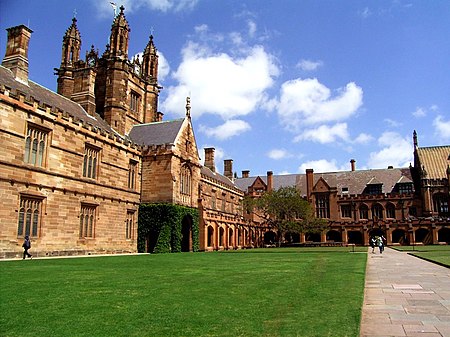
ArnaFront cover of the 2016 edition of ARNA Literary Journal.EditorsKate Scott and Jenna LorgeCategoriesLiterature, artFrequencyAnnuallyPublisherSydney Arts Students Society (provided by the University of Sydney Union)Founded1918CountryAustraliaBased inSydneyLanguageEnglishWebsitewww.arnajournal.com Arna, commonly styled as ARNA, is an annual literary journal published by the University of Sydney Arts Students Society. Originally named The Arts Journal of the University of Sydney, it was publish…

Army service component command (ASCC)/theater army of the United StatesNot to be confused with Seventh United States Army or United States European Command. United States Army Africa redirects here. For it's successor command, see U.S. Army Southern European Task Force, Africa. This article includes a list of general references, but it lacks sufficient corresponding inline citations. Please help to improve this article by introducing more precise citations. (May 2020) (Learn how and when to remo…

Overview about the modern searches for Lorentz violation See also: Tests of special relativity Measurements on light from gamma-ray bursts show that the speed of light does not vary with energy Modern searches for Lorentz violation are scientific studies that look for deviations from Lorentz invariance or symmetry, a set of fundamental frameworks that underpin modern science and fundamental physics in particular. These studies try to determine whether violations or exceptions might exist for wel…

Japanese manga series Crazy Food TruckCover of the first volumeŃé»Ńā¼ŃéżŃéĖŃā╝ŃāĢŃā╝ŃāēŃāłŃā®ŃāāŃé»(Kureij─½f┼½dotorakku)GenreAdventure, comedy[1] MangaWritten byRokurou Ogaki [ja]Published byShinchoshaEnglish publisherNA: Viz MediaMagazineMonthly Comic @BunchDemographicSeinenOriginal runJuly 21, 2020 ŌĆō December 21, 2021Volumes3 (List of volumes) Crazy Food Truck (Japanese: Ńé»Ńā¼ŃéżŃéĖŃā╝ŃāĢŃā╝ŃāēŃāłŃā®ŃāāŃé», Hepburn: Kureij─½f┼½dotorakku) is a Japanese manga s…

Ķé¢õ┐ŖńöĘĶē║õ║║µ£¼ÕÉŹĶé¢ÕŠĘõ┐ŖĶŗ▒µ¢ćÕÉŹXiao JunµśĄń¦░ķÉĄÕĪŖ[Ķ©╗ 1]ŃĆüÕ╣╝ń©Üķ¼╝ŃĆüĶīēĶÄēÕģ¼õĖ╗ŃĆüÕøøķāÄÕøĮń▒Ź õĖŁÕŹÄõ║║µ░æÕģ▒ÕÆīÕøĮÕć║ńö¤ (1999-08-08) 1999Õ╣┤8µ£ł8µŚź’╝ł24µŁ▓’╝ē õĖŁÕøĮÕ╗ŻµØ▒ń£üµØ▒ĶÄ×ÕĖéĶüīõĖܵŁīµēŗŃĆüµ╝öÕæśĶ»ŁĶ©ĆÕ╗ŻµØ▒Ķ®▒ŃĆüµÖ«ķĆÜĶ®▒ŃĆüķ¤ōĶ¬×ŃĆüĶŗ▒Ķ¬×µ»ŹµĀĪµØ▒ĶÅ»ÕłØń┤ÜõĖŁÕŁĖõĖŖµĄĘµł▓ÕŖćÕŁĖķÖóķ¤│µ©éÕŖćń│╗ķ¤│õ╣Éń▒╗Õ×ŗK-POPŃĆüC-POPµ╝öÕźÅõ╣ÉÕÖ©ÕÉēõ╗¢Õć║ķüōÕ£░ńé╣ õĖŁÕøĮ’╝ÜWayV ķ¤®ÕøĮ’╝ÜNCTÕć║ķüōµŚźµ£¤WayV’╝Ü2019Õ╣┤1µ£ł17µŚź’╝ī5Õ╣┤ÕēŹ’╝ł2019-…
